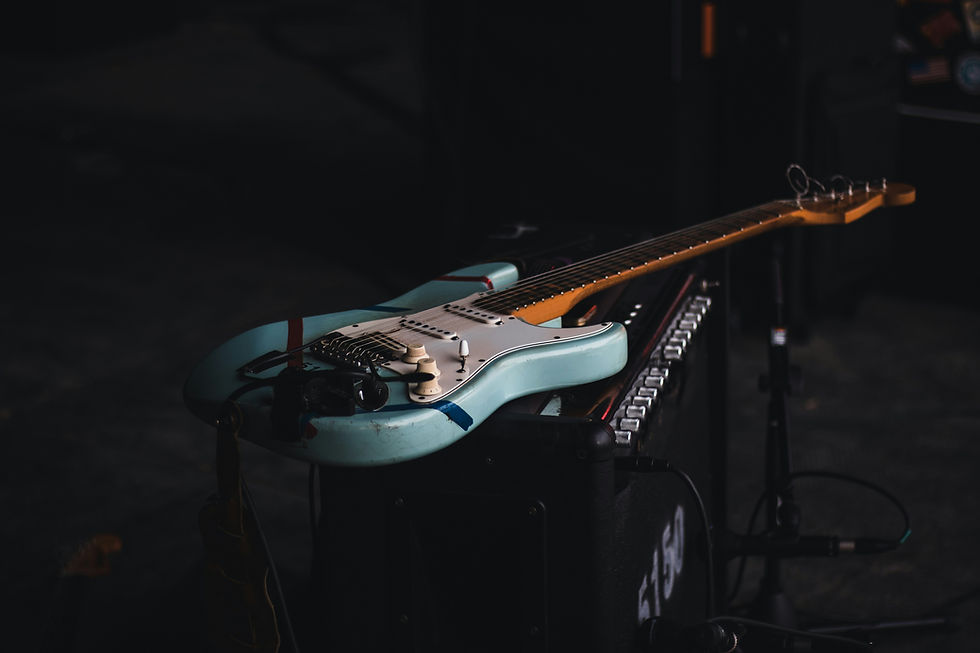Develop Your Musical Voice
- Michelle Monette

- Mar 13, 2023
- 2 min read

“It’s my failure to sound like my heroes that’s allowed me to sound like myself.” - John Mayer
One of the most fulfilling parts of being an artist is finding your own voice. It’s why many of us become musicians: to share our thoughts, experiences, and emotions through a medium we love. As with other aspects of our art, developing a distinct musical perspective takes time, and tends to follow a winding, sometimes chaotic path. But there are a few areas we can focus on to help guide our process. By drawing inspiration from a wide variety of our heroes, utilizing our strengths and limitations, and by creating regularly, we can all develop our own musical fingerprint.
When we make music, borrowing ideas from our favourite musicians and bands is a great way to get started. We can experiment with the same compositional approaches, sounds, techniques, and devices they use, treating them as a blueprint for our own songs. But if we end up putting all our eggs into one “inspiration basket,” we risk being a poor facsimile of the real thing. To paraphrase guitarist Guthrie Govan, if all you do is play like Stevie Ray Vaughan, you’ll just end up sounding like a bad Stevie Ray Vaughan. Instead, we want to be the sum of many influences. This means pulling from a variety of sources we love, taking what we appreciate most about them, and melting them into a collage that reflects our particular musical history.
Of course, we don’t want our artistic style to only reflect who inspires us. Instead, we want to take what makes us who we are—our own musical and life experiences, as well as our strengths and weaknesses—and use it as a strainer to sift through the work of our idols. In the commentary for John Mayer’s Any Given Thursday concert DVD, John laments being unable to sing like one of his heroes, the musician Sting. He explains: “I have a really narrow range of being able to sing, and I write my songs within that range so you can’t really tell that…I can’t sing higher than a certain note.” Though limited by his vocal ability, he has built a library of music that sounds distinctly like him. We are generally going to fall short of what our heroes can do, but this is not a bad thing—it’s ultimately a large part of why our musical output will be unique to us.
Although listening to, studying, and experimenting with what we learn from the output of others is beneficial, we won’t ever know our own voice until we do the work to find out what it is. In his book Steal Like an Artist, Austin Kleon warns against waiting until we know who we are before being creative. “In my experience, it’s in the act of making things and doing our work that we figure out who we are.” We need to write a lot of music before we can know, with confidence, exactly what we sound like. Write or compose regularly—every day, if possible—to develop your voice, and find your place in the musical landscape.







Comments